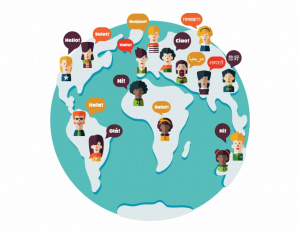Difference between revisions of "Language/Multiple-languages/Vocabulary/Collocations-with-have"
< Language | Multiple-languages | Vocabulary
Jump to navigation
Jump to search
| Line 1: | Line 1: | ||
A collocation is made up of two or more words that are commonly used together in English. Here are some important collocations with "Have". | {{Multiple-languages-flag}} | ||
A collocation is made up of two or more words that are commonly used together in English. Here are some important collocations with "Have". | |||
Happy learning :) | |||
{| class="wikitable" | {| class="wikitable" | ||
!English | !English | ||
Revision as of 19:21, 14 February 2022
A collocation is made up of two or more words that are commonly used together in English. Here are some important collocations with "Have".
Happy learning :)
| English | Mandarin Chinese | French |
|---|---|---|
| have a bath | 洗澡 (xǐzǎo) | Prendre un bain |
| have a drink | 喝酒 (hējiǔ) | Prendre un verre |
| have a good time | 玩得開心/玩得开心 (wán de kānxīn) | Prendre du bon temps |
| have a haircut | 理髮/理发 (lǐfǎ)/(lǐfà) | Se faire couper les cheveux |
| have a holiday | 放假 (fàngjià) | Prendre des vacances |
| have a problem | 有問題/有问题 (yǒu wèntí) | Avoir un problème |
| have a relationship | 有關係/有关系 (yǒu guānxì)/(yǒu guānxi) | Avoir une relation amoureuse |
| have a rest | 休息 (xiūxí)/(xiūxi) | Se reposer |
| have lunch | 吃午飯/吃午饭 (chī wǔfàn) | Déjeuner |
| have sympathy | 同情 (tóngqíng) | Avoir de la compassion |
